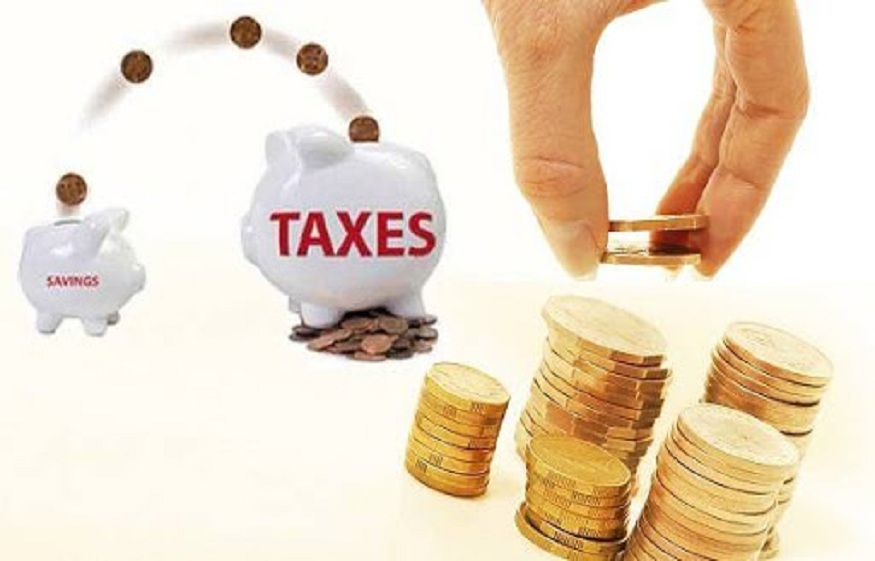Tax saving FD
Fixed deposit
Rate of interest differs from Bank to Bank. Normally, the rate is highest for deposits for 3-5 years. This, however, does not mean that the depositor loses all his rights over the money for the duration of the tenor decided. Deposits can be withdrawn before the period is over. However, the amount of interest payable to the depositor, in such cases goes down. Every Bank offers fixed deposit schemes with a wide range of tenures for periods from 7 days to 10 years.
Interest rates range from bank to bank. For 3-5 years the amount is typically the highest for deposits. This, however does not mean that for the term of the tenor chosen, the depositor loses all his rights over the money. Before the term is over, deposits can be removed. However, in those situations, the rate of interest owed to the depositor goes down. For terms from 7 days to 10 years, each bank provides fixed-deposit schemes with a large variety of tenures. Thereby, the Tax saving FD can turn out to be a best option.
Therefore, the depositors are supposed to continue such Fixed Deposit for the duration of time for which the depositor decides to keep the money with the bank. However, in case of need, the depositor can ask for closing the fixed deposit in advance by paying a penalty. Soon some banks have even introduced variable interest fixed deposits. The rate of interest in such deposits will keep on varying with the prevalent market rates i.e. it will go up if market interest rate goes and it will come down if the market rates fall. The rate of interest for Fixed Deposits (FD) differs from bank to bank. When the interest rates were regulated by RBI all banks used to have the same interest rate structure. The present trends indicate that private sector and foreign banks offer higher rates of interest.
Therefore, for the remainder of the term for which the depositor chooses to keep the money with the bank, the depositors are forced to retain these fixed deposits. However the depositor may apply for the closure of the fixed deposit in advance by paying a premium in case of need. Soon, some banks have launched fixed deposits with variable interest. The interest rate on such deposits will continue to change with the current market rates, i.e. if the market interest rate rises up and if the market rates decline, it will come down. The Fixed Deposits (FD) interest rate varies from bank to bank. Both banks used to have the same interest rate arrangement before interest rates were governed by the RBI. Recent patterns suggest that higher interest rates are being provided by the private sector and international banks.
Opening a Fixed Deposit
While opening a fixed deposit account, the bank must issue a fixed deposit that should state the following things on its face :
Date of issue
Due date
Amount
Rate of interest
Period of deposit
Amount at maturity
A Fixed Deposit Opening
The bank must issue a fixed deposit whilst opening a fixed deposit account that should mention the following things on its face:
Day of issuance
Due Date Due
Quantity
Interest Rate
Deposit duration
Quantity at maturity
Tips to remember while going for a Fixed deposit
Following are the things to keep in mind while opting a Fixed Deposit.
Decide in advance, the period for which you are going to invest.
Shop around for the best rate of interest available.
Avoid Banks which do not have a long history
If you need a part of the money before your deposit matures, seek your banker’s advice whether taking an overdraft will be beneficial
You need to be very careful while entrusting your money to finance companies which promise high rates of interest.
Tips for recalling a fixed deposit when going for a
The points to keep in mind when considering a fixed deposit are below.
Decide the time you’re going to spend in advance.
For the highest possible rate of interest, trade around.
Stop banks with a long history of not getting
When you need a majority of the money before your deposit expires, get advice from your lender if taking an overdraft would be helpful.
When entrusting your money to finance firms that offer high interest rates, you need to be very vigilant.
Popularity of fixed deposits is diminishing due to constant decrease in fixed deposit interest rates. It got a boost when the Indian government announced in 2006 that bank fixed deposits by an individual/HUF for 5 years and up to Rs. 100000/- will be eligible for exemption. This exemption would be under section 80C of the income tax act 1961, provided the investor makes necessary declarations. This is the same section where we get exemption for life insurance policies, Mutual Funds, etc.
The fixed deposits which were giving interest rates up to 14% or more a decade back have recently slump to around 7%. However, as soon as the announcement from the income tax department came, fixed deposits again started attracting more and more investments.
Tax Saving Fixed Deposit u/s 80C.
Owing to the constant fall of fixed deposit interest rates, the popularity of fixed deposits is declining. It received a boost when the Indian government declared in 2006 that an individual/HUF would be eligible for exemption for bank fixed deposits for 5 years and up to Rs. 100000/-. Section 80C of the Income Tax Act 1961 would allow for this exception, provided that the investor makes the required declarations. It is the same section where life insurance plans, pension funds, and so on are removed.
The fixed deposits that gave interest rates up to 14% or more a decade ago have recently slumped to around 7%. However as soon as the income tax department announcement arrived, fixed deposits again began to draw more and more investments.
Fixed Deposit Saving Levy U/s 80C.
Fixed Deposits also offer Tax benefit under Section 80C. The following are the key points regarding the tax saving fixed deposit under section 80C :
Tax saving fixed deposits has the lock-in period of 5 years. You will not be able to take the money before five years.
The interest rates for this scheme will differ from bank to bank.
Only banks are providing Tax savings fixed deposits. You cannot open it with a company fixed deposit product.
Minimum deposit should be Rs.100.
Under Section 80C, fixed deposits also provide tax incentives. The following are the key points of section 80C about the fixed tax saving deposit:
The lock-in term of 5 years is for tax-saving fixed deposits. Five years from now you will not be able to take the capital away.
The interest rates for this arrangement would vary from bank to bank.
Only banks have fixed deposits for tax benefits. With a firm fixed deposit product, you can not open it.
Rs.100 should be the minimum deposit.
Maximum of Rs.100000 is exempted u/s 80c for one financial year
Nomination Facility available.
In this scheme you will not be getting many other benefits which is available in normal fixed deposit, Such as; – Partial/Premature withdrawal – Sweep-in – Overdraft facility
In case of joint account, the deductions u/s 80c will be allowed only for the first account holder.
Interest income from this is taxable.
U/s 80c is exempted for one financial year with a limit of Rs.100000
Open Nominating Facility.
You will not gain many other advantages with this method that are present in regular fixed deposit, such as; – Partial/Premature withdrawal – Sweep-in – Overdraft facility
U/s 80c deductions would only be permitted by the first account holder in the case of a joint account.
Interest gains on this are taxable.
Features of Tax Saver Fixed Deposits
Tax Saving Fixed Deposits can be purchased for a minimum amount of Rs. 100, and then in multiples of Rs. 100. The maximum amount eligible for tax deduction is Rs. 100,000 for a financial year. One of the major drawbacks of tax saving Fixed Deposit is that your amount will be locked for a 5 year period.
Investment made in Tax Saving FDs cannot be withdrawn nor can it be pledged for any reason during the tenure. Though the interest rates are varying very frequently and can change in the future, the currently prevailing interest rates on a tax saver fixed deposit is around 8% to 8.75%.
Tax Saver Fixed Deposits functionality
You can buy Tax Saving Fixed Deposits for a nominal number of Rs. 100, and then multiples of Rs. 100. For a financial year, the overall value available to be tax withheld is Rs. 100,000. One of the big disadvantages of Fixed Deposit tax saving is that the balance is frozen for a term of 5 years.
Investment made in FDs with tax benefits cannot be lost or for some reason within the period should be pledged. While interest rates vary very widely and will adjust in the future, the average interest rates on a fixed deposit by a tax saver are about 8% to 8.75%.
This fixed deposit cannot be linked to a savings account and the surplus funds available under the savings account cannot be automatically invested in this fixed deposit. Moreover there is no overdraft facility available on the tax saver fixed deposit. As this instrument of saving money is special due to its tax saving status, normally banks do not extend relationship benefits on the tax saver fixed deposit. Anyone who is an Indian resident or Hindu undivided family (HUF) can apply for a 5 year tax saving fixed deposit.
This fixed deposit cannot be connected to a savings account and it is not possible to directly spend the excess funds available under the savings account in this fixed deposit. In comparison, there is no overdraft service available on the fixed deposit for tax savers. As this money-saving tool is unusual because of its tax-saving status, banks typically do not apply the tax-saver fixed deposit partnership advantages. For a 5 year tax saving fixed deposit, someone who is an Indian citizen or Hindu undivided family (HUF) will apply.
Joint Investment in Tax Saver Fixed Deposit?
In case two people invest in a tax saver fixed deposit, and become joint holders of the same, the tax benefits under section 80C of income tax act will be available only to the 1st holder. The second holder won’t be able to enjoy any tax benefits on such a jointly held tax saver fixed deposit.
Other alternatives
Like life insurance and mutual funds (ELSS), this exemption comes under Section 80 C of the Income Tax Act, 1961. However, what you need to know is whether it is a better option to choose Tax Saver FD as an investment option, Fixed Deposits offer tax benefits when you invest in them. Some experts say that five-year tax-saver FDs could be better than PPF.
Fixed bank Mutual Interest in Tax Saver?
In the event of persons engaging in a fixed deposit of a tax saver and being joint holders thereof, the tax advantages alluded to in section 80C of the Income Tax Act shall be applicable only to the first holder. For such a jointly owned tax saver fixed deposit, the second holder would not be entitled to reap any tax advantages.
Some options
This exception, including life insurance and mutual funds (ELSS), falls under Section 80 C of the Income Tax Act, 1961. What you need to remember, though, is whether it is a safer choice to use Tax Saver FD as a savings option, because whether you invest in them, Fixed Deposits provide tax advantages. Some analysts say it could be cheaper than PPF for five-year tax-saver FDs.
In PPF, your money will be locked for a period of 15 years but you can avail loans against the PPF account after the completion of one year from the end of the financial year of opening of the account and before completion of the fifth year. You can withdraw money after completion of 5 years from the end of the year of opening the account. In this case, a five-year fixed deposit can score over the PPF due to higher lock-in period.
In PPF, the cash will be locked for a term of 15 years, but after the expiration of one year from the end of the account opening financial year and before the completion of the fifth year you will use loans against the PPF account. After 5 years from the end of the account opening year you will withdraw cash. In this scenario, owing to a longer lock-in term, a five-year fixed deposit will rank above the PPF.




